
Cinematography
Actor Ernst Stein, having abdicated from the stage in 1968 in protest of the Soviet invasion of Czechoslovakia, has long since retreated from the world around him. In a remote house encircled by an overgrown garden, he lives in a world of dreams and memories. Suddenly, in 1989, an out-of-kilter society sends forth its progeny. Young people, tramps and characters of all sorts take refuge with Stein for a short span, carrying the turmoil of the times into his house.

Director of Photography

Cinematography
Even the military academy can't stop kind-hearted officer Gottfried Engelhardt from seeing the world through rose-colored glasses. Everything in the young GDR is blooming: Engelhardt's career, the socialist state, the black market, and maybe even a chance at love.
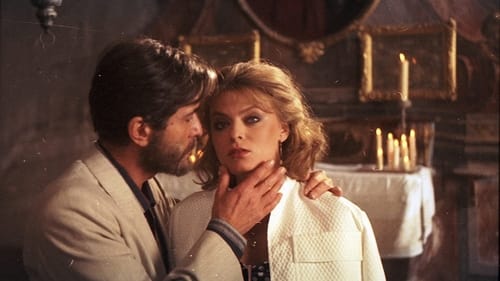
Cinematography
Вера - секретарь штаб-квартиры НАТО в Брюсселе, где решения о жизни или смерти миллионов людей принимаются за большим столом. Во время деловой поездки в США она узнаёт, что ядерные ракеты США будут размещены в Западной Европе. Ядерная угроза теперь в пределах досягаемости. Как с этим бороться? Эти знания тяжело давят на девушку, а также выставляют её любовь к британскому полковнику Шелвину в ином свете. Но нельзя спрятаться от собственных моральных норм. Вера принимает решение, и она едет с ним в Восточный Берлин...

Cinematography
The 24-year-old Andreas works as a mechanic at a tunnel building site in the Bulgarian Rhodopes. One day, he gets the startling news that his girlfriend Sabine, who is supposedly waiting for him in their far-off hometown Berlin, wants to marry another man. Seething with anger, Andreas leaves the building site and hurries to the capital in order to prevent his beloved’s wedding. On the first encounter with his rival, an athletic water polo player, Andreas comes off second best. However, neither his zest for action nor his firm intention can be shaken by this defeat. With passionate energy and some outlandish ideas he takes up the fight for Sabine’s heart.

Cinematography

Cinematography
Two farmers, Grimm and Melcher, were once on friendly terms, but a petty argument over a piece of land has since turned them into implacable enemies. Their two children- Veronika and Fabian- used to be childhood friends. When they meet again as young adults, they instantly fall in love, despite the bitter feud between their families. With no hope for a future together, the two seek to end their lives in this retelling of the classic story by Shakespeare.

Director of Photography

Director of Photography
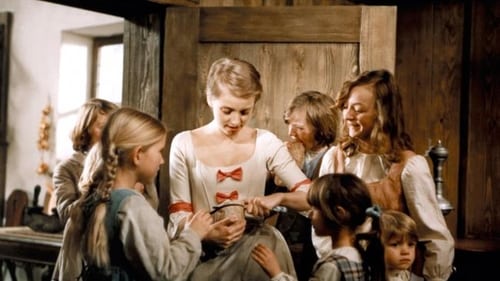
Cinematography
The young and rebellious Werther is passionately, but hopelessly, in love with Lotte. Although he knows that she is married to somebody who can offer her a secure future, Werther tries to be near her. Lotte cannot decide between these two men. She eventually rejects Werther, who does not survive her decision.

Cinematography
Послевоенная Германия. Роберт Ниман возвращется домой из русского плена. По дороге он встречает солдата, который тоже идет из плена. Выясняется, что они оба идут в один и тот же дом, к женщине по имени Хельга. Получив похоронную на Роберта, она вышла замуж за Михаэля. После долгих споров мужчины решаются на своеобразную дуэль. Надо пройти через заминированный лес: кто останется жив, тот и вернется к Хельге...

Cinematography
Johann Wolfgang von Goethe (1749-1832) was the author of Werther, the romantic novel that was transformed into a play during Goethe's lifetime and which initiated the whole German romantic movement. The book's story tells of young love and suicide. In this East German film, based on a book by Thomas Mann, Lotte (Lilli Palmer) was the woman who served as the model for the heroine in the novel Werther. She comes to Goethe's hometown for a visit, and her experiences there eerily re-create episodes from the book. Goethe comes across as a pompous old bore, and his friends as pandering sycophants, in this very proper communist party-sponsored, anti-heroic movie.
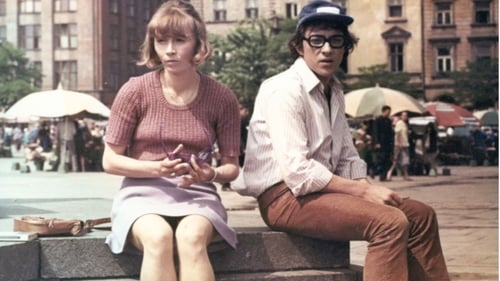
Cinematography
During their holiday in Kraków, a young worker and a student are asked if their love, despite different views on life, will endure.

Cinematography

Director of Photography
In this East German film, the third one in The Third is Margit's third lover. After her mother's death, Margit has two affairs which don't work out, and one lesbian friendship which she retains. She is looking for a husband, though, and thinks she has spotted a candidate in her fellow factory worker. As she contemplates marrying him, her story is told in a series of flashbacks.
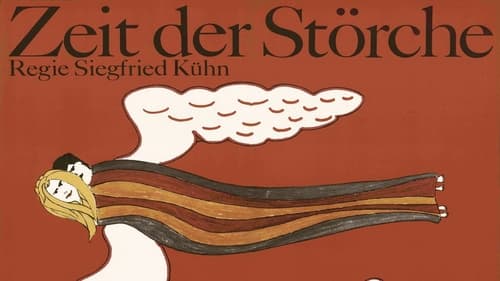
Cinematography
Susanne and Christian get to know each other during a wonderful week in summer - and fall in love. This, however, leads to conflicts: up to now, Susanne has been living with Wolfgang, a biologist. This shared life was harmonious and based on mutual trust. Wolfgang is not only resolute and in full command of social situations; he has also always been the stabilizing force in the relationship. This is precisely why Susanne now feels drawn to the unsettled, unsteady and frivolous Christian, the complete opposite of the calm, well-balanced Wolfgang. And Christian, working as a shift boss on a natural gas derrick, has become more aware of his personal and social responsibilities as a result of loving Susanne.

Director of Photography

Cinematography

Cinematography
In an act of friendship and solidarity between two mining towns in 1929, the locals of Kriwoj Rog, Russia, give their flag as a gift to the locals of Bergstedt, Germany. This quickly takes on a symbolic meaning for the miners in Bergstedt as the Nazi party demands that this Soviet gesture be erased and the flag be replaced with their own. The miner and communist party functionary Otto Brosowski (Erwin Geschonneck) publicly declares it his duty to defend this flag against every danger, and he keeps his promise despite his family being threatened by torment and torture.

Cinematography
The 18-year-old Katharina Jens is a high diving champion and succeeds in everything she does. When she enters an international contest in place of her team colleague Claudia, expectations are accordingly high. However, when she misses the one-and-a-half somersault with a double twist her team fails to gain victory. Suddenly, the question arises if she is in fact good enough.
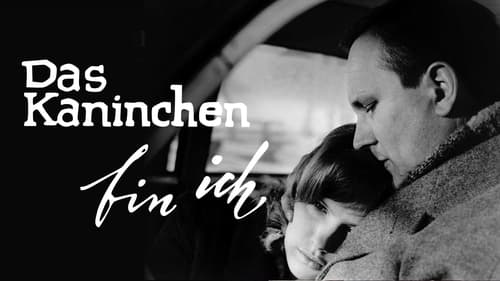
Cinematography
The Rabbit Is Me was made in 1965 to encourage discussion of the democratization of East German society. In it, a young student has an affair with a judge who once sentenced her brother for political reasons; she eventually confronts him with his opportunism and hypocrisy. It is a sardonic portrayal of the German Democratic Republic's judicial system and its social implications. The film was banned by officials as an anti-socialist, pessimistic and revisionist attack on the state. It henceforth lent its name to all the banned films of 1965, which became known as the "Rabbit Films." After its release in 1990, The Rabbit Is Me earned critical praise as one of the most important and courageous works ever made in East Germany. It was screened at The Museum of Modern Art in 2005 as part of the film series Rebels with a Cause: The Cinema of East Germany.

Cinematography
A surrealistic adaptation of Wagner's opera.

Cinematography
The young architect Hannelore becomes part of the all-male brigade Fröhlich whose members are supposed to build houses at the Strausberger Platz in Berlin. The brigade men drink a lot of beer and are less than thrilled about the new girl. Hanne is the only one who is absolutely delighted with Hannelore. When he starts a drunken fight on May Day, he is arrested and accused of armed robbery. Hannelore immediately convinces the other men in the brigade to help Hanne.

Cinematography
Жила-была вдова, у которой было две дочери: одна родная, другая приёмная - падчерица. Старшая родная была уродливой и ленивой, а младшая - красивой и работящей. Падчерица делала всю работу по дому, а вместо благодарности мачеха и сводная сестра постоянно ругали и бранили её. Все это продолжалось бы и дальше, если бы не уронила бедная девушка в колодец катушку с нитками...

Cinematography

Cinematography
Несмотря на то, что у директора по производству Крузе нет ни актеров, ни съемочной группы для этой работы, он безрассудно хвастается, что мог бы снять фильм-ревю. Чтобы не потерять лицо, Крузе собирает четырех человек — драматурга, сценариста, композитора, и сценографа — и поручает им неблагодарную задачу превратить свою идею в фильм. За исключением малоизвестного композитора Александра Риттера, который с энтузиазмом занимается проектом, в этой неразберихе оказались и другие члены команды. Помощник по производству Клаудия Глюк и остальные члены команды поначалу не рассчитывают на Риттера, потому что у него нет абсолютно никакого опыта в написании материала для фильмов-ревю. Но то, чего ему не хватает в опыте, он с лихвой компенсирует своей творческой энергией и энтузиазмом в отношении проекта. Риттер покоряет сердце красавицы Глюк, хотя она с самого начала больше всего ему не доверяла.

Director of Photography
Фильм поставлен по мотивам монгольской народной сказки. Герой сказки юноша Сумбэ, за доброту и честность получает от мудреца совет, как помочь людям избавиться от различных бед. Воспользовавшись советом мудреца, Сумбэ добивается мира и согласия между алчными и корыстолюбивыми старшими братьями.

Cinematography
The beautiful and charming laundress Lurette is a well sought-after young woman in Ludwig XV’s Paris. Her heart is already taken, however, and she makes elaborate plans during Carnival to obtain the man she truly loves, the carpenter Campistrel. During her plans to make Campistrel jealous and recognize his love for her, she meets the Duke of Marly, who plans to make her his mistress. The unsuspecting Lurette finds herself caught in a love triangle, and her peer, Marcelline, must save the beautiful Lurette from these scandalous schemes.

Cinematography
In the late 1950s, the collectivization of agriculture is in full swing in the East German village of Willshagen on the German-German border. Those in charge have to face many obstacles, especially from a large-scale farmer who is unwilling to join the co-op. All of a sudden, mysterious men in a fancy car appear in the village and show an interest in the rundown manor house. Gossip spreads quickly, and some villagers think there will be a re-parceling of properties and a land swap with West Germany. They assume everything will go back to how it used to be and even expect the count to return to his manor. In preparation, the situation in the village escalates at a fevered pitch.

Cinematography

Cinematography
По одноименной пьесе Харальда Хаузера.
В центре фильма - судьба офицера армии бундесвера Манфреда фон дер Лоэ, получившего лучевую болезнь при испытании атомного оружия.
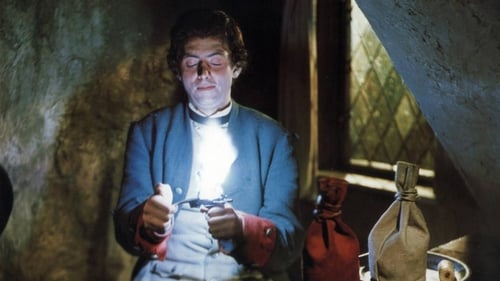
Director of Photography
По сказке Г.Х. Андерсена. Жил-был солдат. Отслужил он службу королю и теперь возвращается домой. Однажды ему на пути встретилась старая ведьма, которая пообещала ему горы денег в обмен на то, что он достанет ей старое огниво....

Cinematography
Комедия о том, как молодой электрик Густав, неожиданно получив в наследство старый дом, сначала очень обрадовался, даже вышел из строительного кооператива, но вскоре понял, что эта "собственность" - тяжелая обуза в жизни, и поспешил избавиться от такого наследства.

Cinematography
Фите девять лет, и он любит рыбалку. Каждый день он часами сидит у ручья в своей деревне. В один из таких дней тишина и покой внезапно нарушаются, когда два хулигана ловят и убивают соседского селезня. Мальчики подкупают Фите, чтобы тот молчал об инциденте, и он соглашается из-за страха. Однако Фите неловко хранить свою тайну, особенно когда дочь соседа начинает отчаянно искать селезня.

Cinematography
Тони и его сестра Рита вне себя от радости, потому что они одни на поезде отправятся в Бомсдорф погостить у бабушки с дедушкой. Однако озорнику Тони всего лишь 10 лет и он не очень-то следит за своей четырехлетней сестрой. В итоге Тони сходит с поезда, позабыв о сестренке, но вот беда — станция не та. Для Тони и Риты начинаются настоящие приключения.

Cinematography
Krestan Serbin, a 64-year-old Sorbian farm-worker, considers himself non-political. He owns a few acres, a few pigs and a cow, and intends to pass all this on to his daughter Lena. Lena, however, shows only little interest. Krestan’s situation becomes more difficult when he is meant to become integrated into the agricultural production cooperative. He even gets offered a position as Training Supervisor. Although Krestan does not oppose the new policy, he is unwilling to surrender his properties. When the political die-hards who intend to hinder the progressive movement try to win him over, Krestan realizes that it is time to show colours.

























